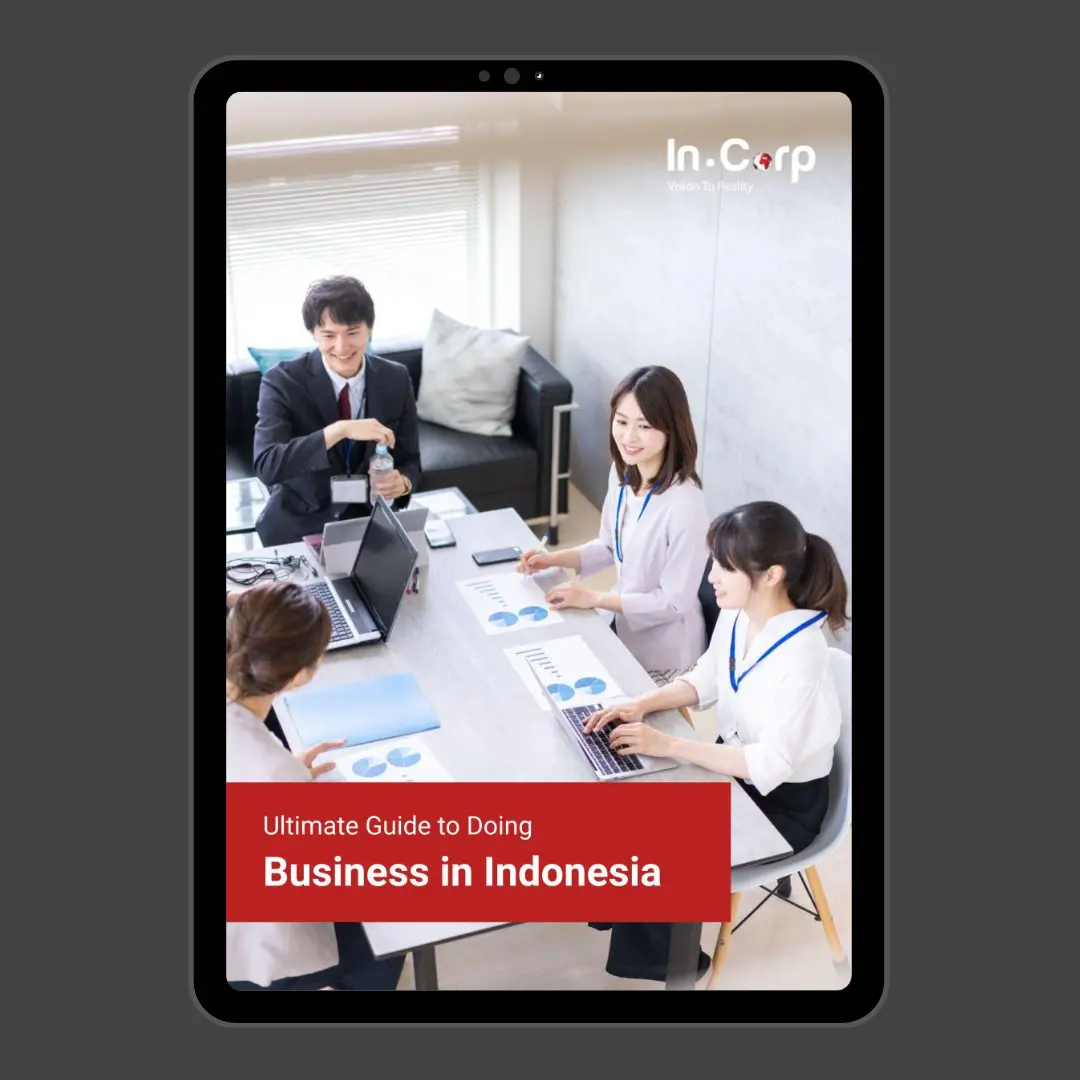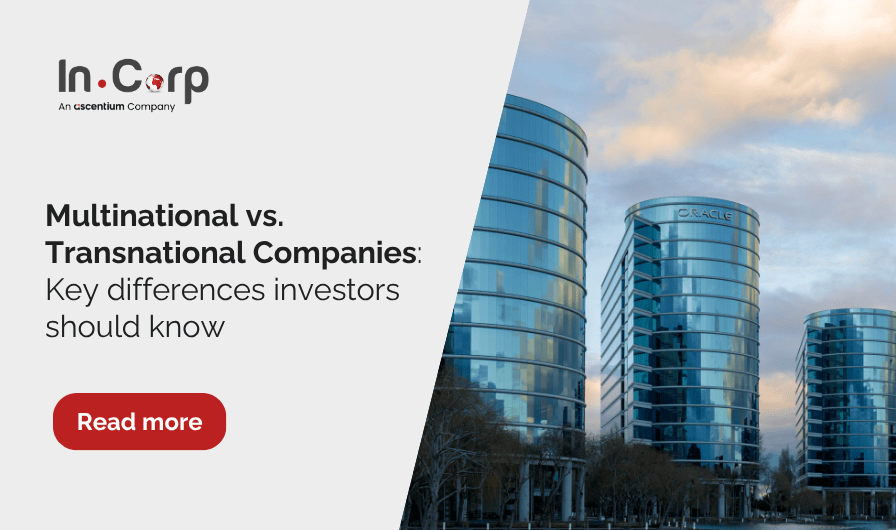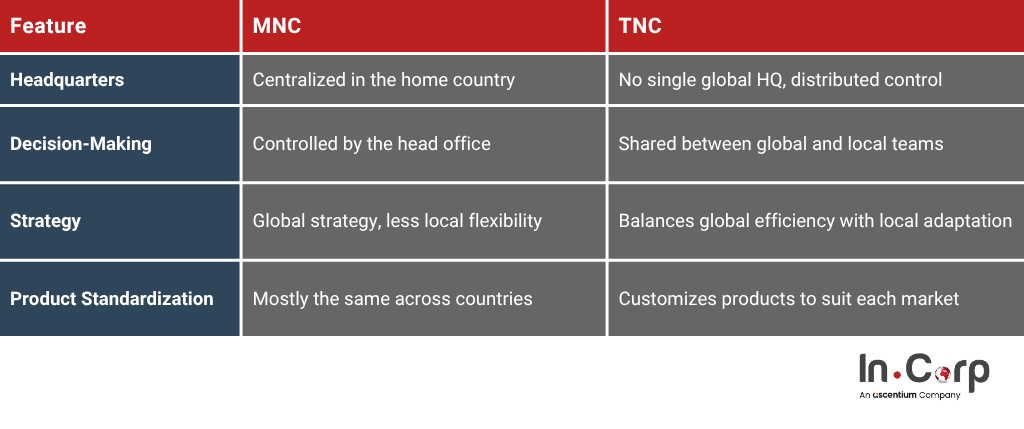In the global business, terms like multinational corporation (MNC) and transnational corporation (TNC) often arise. While they seem alike, they are different in how they operate and grow.
Knowing the difference helps investors make better decisions, especially those planning to invest in Indonesia. This guide will break down both types of companies and explain which might offer better opportunities in Indonesian markets.
Overview of Multinational Corporation (MNC)
A multinational corporation (MNC) is a large company that operates in more than one country but is managed from one home base. These companies set up foreign subsidiaries or branches to manufacture, sell, or manage operations internationally.
Here are several key characteristics of this business type:
- Centralized Control: Managed from the headquarters in the home country.
- Global Presence: Operates in multiple countries through local subsidiaries.
- Brand Recognition: Many are known as multinational brands with strong global visibility.
Indonesia hosts several well-known MNCs, including Unilever Indonesia, a leading consumer goods company; Toyota Astra Motor, a major player in the automotive industry; Nestle Indonesia, a renowned food and beverage company; and Samsung Electronics Indonesia, a prominent technology firm.
Types of Multinational Corporations
Multinational companies can follow different models based on how they manage global operations:
1. Decentralized MNC
Each branch in a different country makes its own decisions and controls operations. This model gives local teams more control over adjusting to local markets.
2. Global Centralized MNC
The headquarters in the home country controls everything. Products and strategies are mostly the same across all countries.
3. International Division MNC
The company has a special team or department to handle international operations. It helps manage overseas business better while staying connected to the head office.
4. Transnational (Hybrid) MNC
This model mixes local freedom with global control. It tries to be both efficient and flexible in different markets.
Read more: Exploring PT PMA in Indonesia: How to establish a foreign-owned company
Overview of Transnational Corporations (TNC)
A transnational corporation is a type of company that operates in multiple countries. Unlike a traditional MNC, it does not have a strong central headquarters. Instead, it builds a network of operations where each branch works almost like its own local business.
TNCs aim to be globally connected but locally responsive, adapting their products, services, and strategies to fit each country’s needs.
Key Characteristics of TNCs
Several key characteristics of TNCs, including:
- No Single Headquarters: TNCs often have multiple regional offices instead of one central headquarters.
- Flexible Operations: Each branch can create products and strategies that match local preferences.
- Cultural Adaptation: Their ability to blend into local cultures helps them build strong customer relationships.
Read more: Important guide to setting up PT PMA in Indonesia
Key differences between MNC and TNC
MNCs and TNCs operate in multiple countries, but their structure, strategy, and operations differ. Here is a clear breakdown:
Why This Matters to Investors
Whether a company is an MNC or a TNC, both can have high profit potential, especially in fast-growing markets like Indonesia. The key differences lie in how they manage global and local needs. This presents an exciting opportunity for investors.
If you are planning to invest in Indonesia, both types of corporations can benefit from:
- A large consumer base
- Strategic location in Southeast Asia
- Growing demand for foreign brands
- Government support for foreign direct investment (FDI)
However, success also depends on complying with local regulations. That includes proper company registration and having the correct business licenses. With the help of a trusted agent, compliance will be faster and easier for foreign investors, ensuring smooth operation in the future and instilling confidence in your investment.
Guide to Doing Business in Jakarta

Ready to expand your business in Indonesia?
Both multinational corporations (MNCs) and transnational corporations (TNCs) offer great opportunities in Indonesia. However, staying fully compliant with local regulations ensures successful operations.
InCorp Indonesia (an Ascentium Company) simplifies the complex regulatory landscape so you can focus on what matters—growing your business. We provide complete business setup solutions, including company registration and licensing, to ensure a smooth and successful business expansion in Indonesia.
- Company Registration: We assist foreign investors in legally establishing their businesses in Indonesia, ensuring compliance with local laws.
- Business Licensing: We help secure the necessary licenses so your operations can run smoothly and without interruption.
Contact us today and take the first step toward confidently expanding your business in Indonesia.
Frequently Asked Questions
What is a Multinational Corporation (MNC)?
A multinational corporation is a company that operates in more than one country but is managed from a central headquarters in its home country.
What types of Multinational Corporations exist?
There are four types: Decentralized MNC, Global Centralized MNC, International Division MNC, and Transnational (Hybrid) MNC.
How is a Transnational Corporation (TNC) different from an MNC?
Unlike MNCs, TNCs have no single headquarters and allow each branch to operate more independently, adapting strategies to local markets.
Why is Indonesia attractive for MNCs and TNCs?
Indonesia offers a large consumer base, strong economic growth, and government support for foreign investment—making it ideal for global business expansion.
How InCorp can help with MNC or TNC establishment in Indonesia?
We provide an end-to-end solutions for business setup and licensing service, ensuring a complete legal compliance and tailored supports for businesses tapping into Indonesia's market
Get in touch with us.
What you'll get
A prompt response to your inquiry
Knowledge for doing business from local experts
Ongoing support for your business
Disclaimer
The information is provided by PT. Cekindo Business International (“InCorp Indonesia/ we”) for general purpose only and we make no representations or warranties of any kind.
We do not act as an authorized government or non-government provider for official documents and services, which is issued by the Government of the Republic of Indonesia or its appointed officials. We do not promote any official government document or services of the Government of the Republic of Indonesia, including but not limited to, business identifiers, health and welfare assistance programs and benefits, unclaimed tax rebate, electronic travel visa and authorization, passports in this website.




